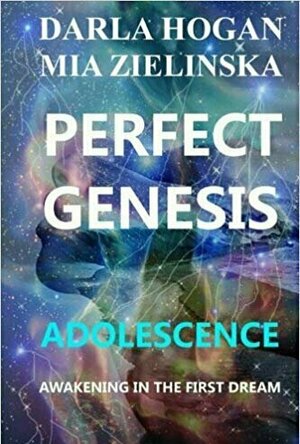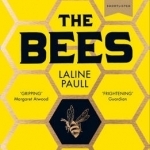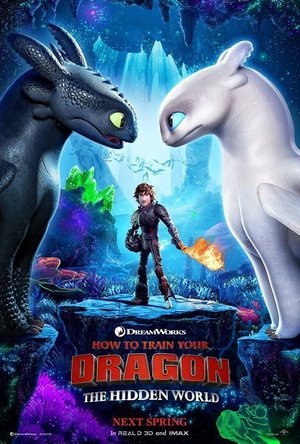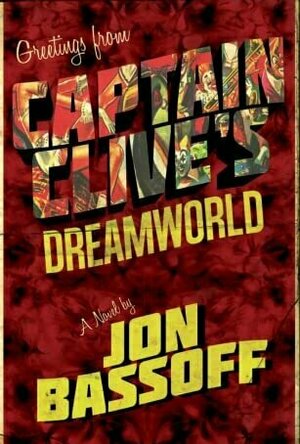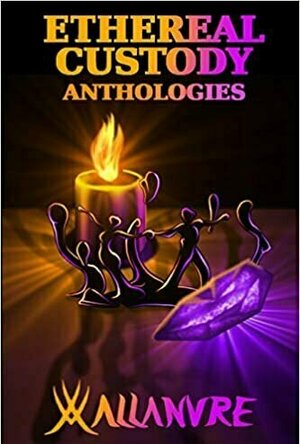Search
Phil Leader (619 KP) rated Perfect Genesis: Adolescence in Books
Nov 21, 2019
This is a book of many levels and many emotions. Superficially it is a far-future science fiction book where societies have been engineered by some planet-spanning intelligence to create stable and sustainable places for humans to live. Under this runs a strong current of philosophy and meta physics about exactly what this means for the individuals involved - and the news isn't good.
The plot follows Leonardo Khalid, a genetically engineered genius who has dedicated his life to improving life for mankind. However when he is taken critically ill he agrees to undergo a procedure to scan and record is brain. He is warned that during the process he will appear to inhabit a very real and long lasting dream as his brain is stimulated.
The dream is extremely vivid - so much so that we don't see it just from Leonardo's point of view. So is it a dream? Or a very real future world that he has somehow been projected into? Leonardo certainly believes he is in a dream, but does that condone some of his more morally questionable actions?
There are plenty of questions raised by this book. As Hogan says in a brief introduction, this book is supposed to stay with the reader long after they have read it, and it will certainly do that. At times it is an uncomfortable read - the dream societies place little value on human life and women in particular are treated very badly. Death, violence and sexual exploitation are daily hazards for the members of the societies described, but these are engineered places, not designed to benefit the individual human but to ensure the longevity of the society itself. They have been created with cold and clinical efficiency with no regard for the individual members of the citizenry.
This is a huge dichotomy and the heart of the book. The story itself - Leonardo exploring the land of his dream and overcoming the various obstacles that hinder him and his companions - skates along the top at a good pace, fizzing between plot points and twists, summoning the reader on to read just one more page. But underneath the dark heart will be throwing up awkward questions.
Exploitation of all sorts abounds, particularly sexual exploitation (not all of it men exploiting women). These sections can be an uncomfortable read but they are supposed to be - the questions around power and the abuse of power are valid and the reader is not supposed to be entirely sympathetic with any of the characters or their actions - even Leornardo. The civilisations are frequently brutal, either because of a dangerous environment or a ruthless ruler. People get hurt, people get abused, people die (sometimes horribly) but always the society lives on.
Read this book if you want to have a fantastic story exploring different places but at the same time have something to think about. By the end you will have seen what can happen if the concept of an ideal society is pursued to its limits. And it's not a utopia.
And yes this book will stay with me for a while. Definitely one of the best reads of 2014. Thoroughly recommended.
Rating: Sexual scenes, sexual violence and some torture.
The plot follows Leonardo Khalid, a genetically engineered genius who has dedicated his life to improving life for mankind. However when he is taken critically ill he agrees to undergo a procedure to scan and record is brain. He is warned that during the process he will appear to inhabit a very real and long lasting dream as his brain is stimulated.
The dream is extremely vivid - so much so that we don't see it just from Leonardo's point of view. So is it a dream? Or a very real future world that he has somehow been projected into? Leonardo certainly believes he is in a dream, but does that condone some of his more morally questionable actions?
There are plenty of questions raised by this book. As Hogan says in a brief introduction, this book is supposed to stay with the reader long after they have read it, and it will certainly do that. At times it is an uncomfortable read - the dream societies place little value on human life and women in particular are treated very badly. Death, violence and sexual exploitation are daily hazards for the members of the societies described, but these are engineered places, not designed to benefit the individual human but to ensure the longevity of the society itself. They have been created with cold and clinical efficiency with no regard for the individual members of the citizenry.
This is a huge dichotomy and the heart of the book. The story itself - Leonardo exploring the land of his dream and overcoming the various obstacles that hinder him and his companions - skates along the top at a good pace, fizzing between plot points and twists, summoning the reader on to read just one more page. But underneath the dark heart will be throwing up awkward questions.
Exploitation of all sorts abounds, particularly sexual exploitation (not all of it men exploiting women). These sections can be an uncomfortable read but they are supposed to be - the questions around power and the abuse of power are valid and the reader is not supposed to be entirely sympathetic with any of the characters or their actions - even Leornardo. The civilisations are frequently brutal, either because of a dangerous environment or a ruthless ruler. People get hurt, people get abused, people die (sometimes horribly) but always the society lives on.
Read this book if you want to have a fantastic story exploring different places but at the same time have something to think about. By the end you will have seen what can happen if the concept of an ideal society is pursued to its limits. And it's not a utopia.
And yes this book will stay with me for a while. Definitely one of the best reads of 2014. Thoroughly recommended.
Rating: Sexual scenes, sexual violence and some torture.
WHEN golden banded honeybees, so often likened to summer and honey sweetness, become the metaphor of a dystopian version of British Government and the Monarchy, what is one left to think?
Established British playwright Laline Paull’s debut novel, The Bees, represents just that. I may just be reading too much into the buzz, but the Oxford alumni who has had two plays performed at the Royal National Theatre must have some of the country in her subconscious as she writes.
The novel follows the life of worker honeybee Flora 717, born of the lowest class of bee society. In a world where mutation and difference is destroyed on sight, the larger-than-average Flora is saved from destruction by opportunities born from austerity in the hive, where ‘the season is deformed by rain, and the flowers shun’ the bees, so they need every available worker.
The life of the honeybee turns out to be symmetrical of Plato’s Republic and his utopia, where children are told what role they will have in life based on their ‘blood’. Plato divided the bronze craftsman, silver guardians and golden philosophers, and Paull divides bees in their ‘kin’ groups, named after flowers, and are priestesses to police, foragers who can fly outside the hive to the sanitation Flora, the lowest, and are given ‘no flower’. ‘A Flora may not make Wax for she is unclean, nor Propolis for she is clumsy, nor ever may she forage for she has no taste, but only may she serve her hive by cleaning,’ but the talented Flora 717 wants more.
Throughout the novel, Paull shows the same attachment to characters as George R R Martin, author of the Game of Thrones novels; the frequent loss deepens the heartbreak Flora must overcome as she fights to defy her set fate and claim the most illegal of desires. No reader will escape the anguish that concludes each new adventure.
The hive is akin to a cult, with leaders keeping their inferiors in check, with fear, intoxication and just a little hypnosis. The cult is complete with its own religion, mantra and even a parody of the Lord’s Prayer, ‘Hallowed be thy womb’, arguably my favourite part. This made the story really exciting, being on the ‘outside looking in’ as the reader, I wanted to encourage Flora to defy, but felt the fear of going against her sisters (this isn’t a cult bond word, they are all blood sisters, for only ‘the queen may breed’).
Paull’s scriptwriting has nurtured the ability to make the reader visualise her words exactly how she writes them, and that is clear within The Bees. I can see the wax panels that Flora 717 scuttles across as she travels around her hive, I can imagine the wax cribs in the nursery and know the deadly yellow and fine lines of the enemy wasp. In the ‘glass cage’ when Flora discovers the Venus Fly Trap, Paull never mentions the plant by name, but speaks only of their ‘red mouths’ with ‘white filaments’ on each ‘inner lip’, they ‘bore no pollen, the only nectar a viscous slick at the join of the petals’. But for all her beautiful imagery seeping off the pages, The Bees was not a book I have felt submerged in.
Full review on <a href="http://www.natari-himi.com">natari-himi.com</a>;
Established British playwright Laline Paull’s debut novel, The Bees, represents just that. I may just be reading too much into the buzz, but the Oxford alumni who has had two plays performed at the Royal National Theatre must have some of the country in her subconscious as she writes.
The novel follows the life of worker honeybee Flora 717, born of the lowest class of bee society. In a world where mutation and difference is destroyed on sight, the larger-than-average Flora is saved from destruction by opportunities born from austerity in the hive, where ‘the season is deformed by rain, and the flowers shun’ the bees, so they need every available worker.
The life of the honeybee turns out to be symmetrical of Plato’s Republic and his utopia, where children are told what role they will have in life based on their ‘blood’. Plato divided the bronze craftsman, silver guardians and golden philosophers, and Paull divides bees in their ‘kin’ groups, named after flowers, and are priestesses to police, foragers who can fly outside the hive to the sanitation Flora, the lowest, and are given ‘no flower’. ‘A Flora may not make Wax for she is unclean, nor Propolis for she is clumsy, nor ever may she forage for she has no taste, but only may she serve her hive by cleaning,’ but the talented Flora 717 wants more.
Throughout the novel, Paull shows the same attachment to characters as George R R Martin, author of the Game of Thrones novels; the frequent loss deepens the heartbreak Flora must overcome as she fights to defy her set fate and claim the most illegal of desires. No reader will escape the anguish that concludes each new adventure.
The hive is akin to a cult, with leaders keeping their inferiors in check, with fear, intoxication and just a little hypnosis. The cult is complete with its own religion, mantra and even a parody of the Lord’s Prayer, ‘Hallowed be thy womb’, arguably my favourite part. This made the story really exciting, being on the ‘outside looking in’ as the reader, I wanted to encourage Flora to defy, but felt the fear of going against her sisters (this isn’t a cult bond word, they are all blood sisters, for only ‘the queen may breed’).
Paull’s scriptwriting has nurtured the ability to make the reader visualise her words exactly how she writes them, and that is clear within The Bees. I can see the wax panels that Flora 717 scuttles across as she travels around her hive, I can imagine the wax cribs in the nursery and know the deadly yellow and fine lines of the enemy wasp. In the ‘glass cage’ when Flora discovers the Venus Fly Trap, Paull never mentions the plant by name, but speaks only of their ‘red mouths’ with ‘white filaments’ on each ‘inner lip’, they ‘bore no pollen, the only nectar a viscous slick at the join of the petals’. But for all her beautiful imagery seeping off the pages, The Bees was not a book I have felt submerged in.
Full review on <a href="http://www.natari-himi.com">natari-himi.com</a>;
Gareth von Kallenbach (980 KP) rated How To Train Your Dragon: The Hidden World (2019) in Movies
Jul 2, 2019
Universal Pictures is wrapping up its How To Train Your Dragon Trilogy with the release of the film: How To Train Your Dragon: Hidden World, set to release on Friday, February 22, 2019.
The film brings back the same core cast of characters as the previous two movies, with Hiccup (Jay Baruchel), Astrid, (America Ferrera), Valka (Cate Blanchet), Eret (Kit Harrington), Gobber (Craig Ferguson), Snotlout (Jonah Hill), Ruffnutt (Kristen Wiig), Tuffnut (TJ Miller), Fishlegs (Christopher Mintz-Plasse), and flashback appearances of Stoic (Gerard Butler).
The story opens on what is supposed to be a “stealthy raid” but isn’t, quite.
We learn that Hiccup and his band of friends (both Dragon and human) are on a continuous mission to rescue captured Dragons from the poachers determined to capture and exploit them.
Hiccup and his friends then bring the rescued dragons back to Berk which is now a “Dragon-Viking utopia”. This arrangement, however idyllic, does not appear to be sustainable in the long-term. It is crowded and messy and Berk is just simply running out of room to house any more Dragons! Astrid and Gobber are concerned that housing all the Dragons on Berk makes the settlement a target for the Dragon hunters, endangering the entire community.
Hiccup is still exploring and reading his father’s old records, and remains convinced that there is “more” out there. He enlists Astrid’s help in finding the hidden world where he believes that all of Berk could move to, with their Dragons to leave in peace and secrecy.
After an attack on Berk, the rest of the community is convinced that Hiccup is right (even as he is not fully convinced himself of his ability to lead them successfully) and agrees to follow him in his search for the Hidden World sanctuary.
The story follows them on their quest and the dangers and successes of the journey to find a new, more suitable home.
The music, animation, and scenery in this movie is great. The details are phenomenal, from the characters’ hair, to the movements of the Dragons, to the Hidden World cave details, really show the attention that was paid in making this movie stand out!
The story line itself, as a continuation of the previous two movies, flows well, and follows an appropriate arc, both as far as relationships as well as time.
The addition of a new Dragon, and the relationship that evolves between the Light Fury and Toothless brings a new level of evolution to the existing relationship between Toothless and Hiccup, and plays on the adage of “if you love something, set it free”.
I laughed throughout the movie, at the dragons’ antics and expressions and interactions with their humans and each other. I held my breath in anticipation at some aspects, and heard myself say ‘oh no!” under my breath at one point as well. Dragons 3 drew me in from the start, and didn’t let go till the very end of the credit rolled. (We stayed until the lights came back up, and even the credits had me smiling with their small surprises!)
I found myself both wishing that this installment wouldn’t be “the end” as well as acknowledging that this story provided a fitting end to the series of films.
If there MUST be an end, this film wraps up the story nicely and provides closure, while yet leaving enough room to imagine what might come next.
I would give this movie 5 out of 5 stars, and while we did not see it in IMAX or 3D, if you have those options available, I would recommend that as well!
The film brings back the same core cast of characters as the previous two movies, with Hiccup (Jay Baruchel), Astrid, (America Ferrera), Valka (Cate Blanchet), Eret (Kit Harrington), Gobber (Craig Ferguson), Snotlout (Jonah Hill), Ruffnutt (Kristen Wiig), Tuffnut (TJ Miller), Fishlegs (Christopher Mintz-Plasse), and flashback appearances of Stoic (Gerard Butler).
The story opens on what is supposed to be a “stealthy raid” but isn’t, quite.
We learn that Hiccup and his band of friends (both Dragon and human) are on a continuous mission to rescue captured Dragons from the poachers determined to capture and exploit them.
Hiccup and his friends then bring the rescued dragons back to Berk which is now a “Dragon-Viking utopia”. This arrangement, however idyllic, does not appear to be sustainable in the long-term. It is crowded and messy and Berk is just simply running out of room to house any more Dragons! Astrid and Gobber are concerned that housing all the Dragons on Berk makes the settlement a target for the Dragon hunters, endangering the entire community.
Hiccup is still exploring and reading his father’s old records, and remains convinced that there is “more” out there. He enlists Astrid’s help in finding the hidden world where he believes that all of Berk could move to, with their Dragons to leave in peace and secrecy.
After an attack on Berk, the rest of the community is convinced that Hiccup is right (even as he is not fully convinced himself of his ability to lead them successfully) and agrees to follow him in his search for the Hidden World sanctuary.
The story follows them on their quest and the dangers and successes of the journey to find a new, more suitable home.
The music, animation, and scenery in this movie is great. The details are phenomenal, from the characters’ hair, to the movements of the Dragons, to the Hidden World cave details, really show the attention that was paid in making this movie stand out!
The story line itself, as a continuation of the previous two movies, flows well, and follows an appropriate arc, both as far as relationships as well as time.
The addition of a new Dragon, and the relationship that evolves between the Light Fury and Toothless brings a new level of evolution to the existing relationship between Toothless and Hiccup, and plays on the adage of “if you love something, set it free”.
I laughed throughout the movie, at the dragons’ antics and expressions and interactions with their humans and each other. I held my breath in anticipation at some aspects, and heard myself say ‘oh no!” under my breath at one point as well. Dragons 3 drew me in from the start, and didn’t let go till the very end of the credit rolled. (We stayed until the lights came back up, and even the credits had me smiling with their small surprises!)
I found myself both wishing that this installment wouldn’t be “the end” as well as acknowledging that this story provided a fitting end to the series of films.
If there MUST be an end, this film wraps up the story nicely and provides closure, while yet leaving enough room to imagine what might come next.
I would give this movie 5 out of 5 stars, and while we did not see it in IMAX or 3D, if you have those options available, I would recommend that as well!
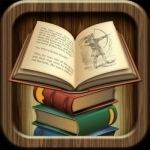
3D Classic Literature Collection
Book and Entertainment
App
• Featured by Apple in "Back to School" in the App Store (US/UK and many others...) • Featured...
Heather Cranmer (2721 KP) rated Captain Clive's Dreamworld in Books
Dec 12, 2020
I love books that deal with a mysterious town that seems to be perfect yet strange things happen, so when I heard about Captain Clive's Dreamworld by Jon Bassoff, I knew this would be my kind of book. I can not tell you enough about how great of a book this was!
Deputy Sam Hardy is fed up with his life. Everything looks bleak for Hardy. When a prostitute is found dead in a seedy motel room and Hardy looks like he may be the culprit, he is banished to take over the role of deputy in the seemingly perfect town of Angels and Hope. Everyone seems to love this town, and everything is so cookie cutter, but the people never seem to sleep. Young girls are going missing yet the town says the girls never existed. When Hardy begins to pry into this town's history, he puts his own wellbeing in jeopardy.
I will say the plot of Captain Clive's Dreamworld drew me in right away. The pacing is done perfectly, and I kept on finding myself reading as fast as possible so I could learn what would happen next. I was instantly transported to the town of Angels and Hope with Deputy Sam Hardy. I never lost interest at all. In my head, I was trying to work out what was wrong with the town. Everything seemed to be perfect there, but we all know that nothing is ever perfect. While Angels and Hope was created to be a utopia, it was much more dystopian. There were many sinister goings on happening. While I was able to predict some of the plot, it was still interesting to read on to see if I was correct. There are a few plot twists too. Jon Bassoff did a fantastic job making this story come together brilliantly enough to keep it interesting. While the book didn't end the way I wanted, it was definitely an interesting ending for sure. All loose ends were tied up and the story came together very well.
I enjoyed each and every character in Captain Clive's Dreamworld. Each character felt realistic and fleshed out. Sam Hardy was quite the interesting character. I liked reading about his thought process. I felt like I was going through everything he was. Although I thought he would be uncaring, he was quite the opposite. His plight to get answers was quite the journey to read about. The three witches were fabulous antagonists. I could picture each of the three women easily in my mind. They were easy to hate. I loved trying to figure out Mayor Sampson's character. I kept on trying to guess how much he knew and what he'd be willing to do to keep secrets hidden. I enjoyed reading about all the townspeople of Angels and Hope and trying to guess what their guilty secrets were and what their end game was.
Trigger warnings for Captain Clive's Dreamworld include death, murder, suicide, violence, prostitution, sex, child rape, incest, blackmail, gaslighting, threats, drugs, alcohol, and swearing. This is not a book for the faint of heart as it deals with some very dark subjects.
All in all, Captain Clive's Dreamworld is a highly entertaining read with a great cast of characters as well as a great plot. It is definitely not for the faint of heart though as it is quite dark but enjoyable nonetheless. I would definitely recommend Captain Clive's Dreamworld by Jon Bassoff to those aged 18+ who love a dark horror novel with great depth.
-
(A special thank you to Pump Up Your Book for providing me with a paperback of Captain Clive's Dreamworld by Jon Bassoff in exchange for an honest and unbiased review.)
Deputy Sam Hardy is fed up with his life. Everything looks bleak for Hardy. When a prostitute is found dead in a seedy motel room and Hardy looks like he may be the culprit, he is banished to take over the role of deputy in the seemingly perfect town of Angels and Hope. Everyone seems to love this town, and everything is so cookie cutter, but the people never seem to sleep. Young girls are going missing yet the town says the girls never existed. When Hardy begins to pry into this town's history, he puts his own wellbeing in jeopardy.
I will say the plot of Captain Clive's Dreamworld drew me in right away. The pacing is done perfectly, and I kept on finding myself reading as fast as possible so I could learn what would happen next. I was instantly transported to the town of Angels and Hope with Deputy Sam Hardy. I never lost interest at all. In my head, I was trying to work out what was wrong with the town. Everything seemed to be perfect there, but we all know that nothing is ever perfect. While Angels and Hope was created to be a utopia, it was much more dystopian. There were many sinister goings on happening. While I was able to predict some of the plot, it was still interesting to read on to see if I was correct. There are a few plot twists too. Jon Bassoff did a fantastic job making this story come together brilliantly enough to keep it interesting. While the book didn't end the way I wanted, it was definitely an interesting ending for sure. All loose ends were tied up and the story came together very well.
I enjoyed each and every character in Captain Clive's Dreamworld. Each character felt realistic and fleshed out. Sam Hardy was quite the interesting character. I liked reading about his thought process. I felt like I was going through everything he was. Although I thought he would be uncaring, he was quite the opposite. His plight to get answers was quite the journey to read about. The three witches were fabulous antagonists. I could picture each of the three women easily in my mind. They were easy to hate. I loved trying to figure out Mayor Sampson's character. I kept on trying to guess how much he knew and what he'd be willing to do to keep secrets hidden. I enjoyed reading about all the townspeople of Angels and Hope and trying to guess what their guilty secrets were and what their end game was.
Trigger warnings for Captain Clive's Dreamworld include death, murder, suicide, violence, prostitution, sex, child rape, incest, blackmail, gaslighting, threats, drugs, alcohol, and swearing. This is not a book for the faint of heart as it deals with some very dark subjects.
All in all, Captain Clive's Dreamworld is a highly entertaining read with a great cast of characters as well as a great plot. It is definitely not for the faint of heart though as it is quite dark but enjoyable nonetheless. I would definitely recommend Captain Clive's Dreamworld by Jon Bassoff to those aged 18+ who love a dark horror novel with great depth.
-
(A special thank you to Pump Up Your Book for providing me with a paperback of Captain Clive's Dreamworld by Jon Bassoff in exchange for an honest and unbiased review.)
Ivana A. | Diary of Difference (1171 KP) rated Ethereal Custody: Anthologies in Books
Aug 3, 2020
<a href="https://amzn.to/2Wi7amb">Wishlist</a>; | <a
<a href="https://diaryofdifference.com/">Blog</a>; | <a href="https://www.facebook.com/diaryofdifference/">Facebook</a>; | <a href="https://twitter.com/DiaryDifference">Twitter</a>; | <a href="https://www.instagram.com/diaryofdifference/">Instagram</a>; | <a href="https://www.pinterest.co.uk/diaryofdifference/pins/">Pinterest</a>;
<img src="https://diaryofdifference.com/wp-content/uploads/2020/06/Book-Review-Banner-60.png"/>;
Ethereal Custody: Anthologies is a story about a young man, who was born in an underground slum and decides to risk his life for a chance to reach the surface. During his pursuit, he discovers that he is part of a much larger scheme of a supernatural nature, in an alternate reality. To escape his world, he grasps the opportunity to create utopia. But paradise has a dark side too.
While we follow this main character, we also follow different characters, who are part of the alternative world that this man created in his dreams - with their own stories of supernatural nature, Angels and people with animalistic tendencies involved as well.
<b><i>“We don’t hold grudges against Angels who didn’t save us. Our self-held grudges stem from the idea that we should have been able to save ourselves.”</i></b>
The story follows a few different planets, with a lot of different characters.
The book is written in the form of a journal. For me, it was very difficult to keep track of the planets and characters. I was losing interest very quickly, re-reading the same page a few times, seeking for adventures and plot twists, when all I could see were descriptions of places and objects. Sometimes there were good parts, where the story was really intriguing. Other times, I had to put the book down and read something else.
<b><i>“I don’t know if it’s forgiveness or love or grieving. But life feels like this slow and heartbroken process of learning to live without something we wanted so badly that we cannot have. To go on without those loved people we miss so much and all the precious moments we could have shared and knowing those futures will never be. It’s having to learn how to trek forward in a new life without a part of yourself; that missing fragment of a loving heart we surrendered and gave away as a gift to someone who’s no longer here with us.”</i></b>
There were many descriptions of places being repeated with the exact words. This made me wonder and question myself whether I’ve read this before. I then needed to go back in the book and reassure myself. It was very irritating to go back and find the same paragraph a few chapters earlier, with the same description of a place.
<b><i>“If there’s anything I learned tonight, it is this: I want to die with a smile on my face.”</i></b>
I am sad to say I didn’t enjoy this book.
Honestly, I liked the idea and where it was intended to go. I also liked the way it was written in the form of a journal. However, the writing was bad. Not only from a grammar and editing point of view, but also the skill to keep the reader intrigued. This book put me through a big reading slump. I am not a fan of DNFing books, but I was close with this one. I recommend Ethereal Custody: Anthologies, if you enjoy multiple planets, a lot of characters and a bit of supernatural sprinkles on top, but this book wasn’t for me.
<b><i>“We are afraid to be silent, yet afraid to speak. We fear to be alone with our demons in the dark, yet we are terrified of those demons being seen in the light among friends. Afraid to be powerless; afraid to be influential. I don’t understand it. I just don’t want to be afraid of myself anymore.”</i></b>
<a href="https://diaryofdifference.com/">Blog</a>; | <a href="https://www.facebook.com/diaryofdifference/">Facebook</a>; | <a href="https://twitter.com/DiaryDifference">Twitter</a>; | <a href="https://www.instagram.com/diaryofdifference/">Instagram</a>; | <a href="https://www.pinterest.co.uk/diaryofdifference/pins/">Pinterest</a>;
<img src="https://diaryofdifference.com/wp-content/uploads/2020/06/Book-Review-Banner-60.png"/>;
Ethereal Custody: Anthologies is a story about a young man, who was born in an underground slum and decides to risk his life for a chance to reach the surface. During his pursuit, he discovers that he is part of a much larger scheme of a supernatural nature, in an alternate reality. To escape his world, he grasps the opportunity to create utopia. But paradise has a dark side too.
While we follow this main character, we also follow different characters, who are part of the alternative world that this man created in his dreams - with their own stories of supernatural nature, Angels and people with animalistic tendencies involved as well.
<b><i>“We don’t hold grudges against Angels who didn’t save us. Our self-held grudges stem from the idea that we should have been able to save ourselves.”</i></b>
The story follows a few different planets, with a lot of different characters.
The book is written in the form of a journal. For me, it was very difficult to keep track of the planets and characters. I was losing interest very quickly, re-reading the same page a few times, seeking for adventures and plot twists, when all I could see were descriptions of places and objects. Sometimes there were good parts, where the story was really intriguing. Other times, I had to put the book down and read something else.
<b><i>“I don’t know if it’s forgiveness or love or grieving. But life feels like this slow and heartbroken process of learning to live without something we wanted so badly that we cannot have. To go on without those loved people we miss so much and all the precious moments we could have shared and knowing those futures will never be. It’s having to learn how to trek forward in a new life without a part of yourself; that missing fragment of a loving heart we surrendered and gave away as a gift to someone who’s no longer here with us.”</i></b>
There were many descriptions of places being repeated with the exact words. This made me wonder and question myself whether I’ve read this before. I then needed to go back in the book and reassure myself. It was very irritating to go back and find the same paragraph a few chapters earlier, with the same description of a place.
<b><i>“If there’s anything I learned tonight, it is this: I want to die with a smile on my face.”</i></b>
I am sad to say I didn’t enjoy this book.
Honestly, I liked the idea and where it was intended to go. I also liked the way it was written in the form of a journal. However, the writing was bad. Not only from a grammar and editing point of view, but also the skill to keep the reader intrigued. This book put me through a big reading slump. I am not a fan of DNFing books, but I was close with this one. I recommend Ethereal Custody: Anthologies, if you enjoy multiple planets, a lot of characters and a bit of supernatural sprinkles on top, but this book wasn’t for me.
<b><i>“We are afraid to be silent, yet afraid to speak. We fear to be alone with our demons in the dark, yet we are terrified of those demons being seen in the light among friends. Afraid to be powerless; afraid to be influential. I don’t understand it. I just don’t want to be afraid of myself anymore.”</i></b>
Paul Chesworth (3 KP) created a post
Feb 20, 2018
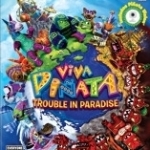
Viva Pinata: Trouble in Paradise
Video Game
Social. The world of Piñata Island is an inviting and rewarding place to be. Family members and...
